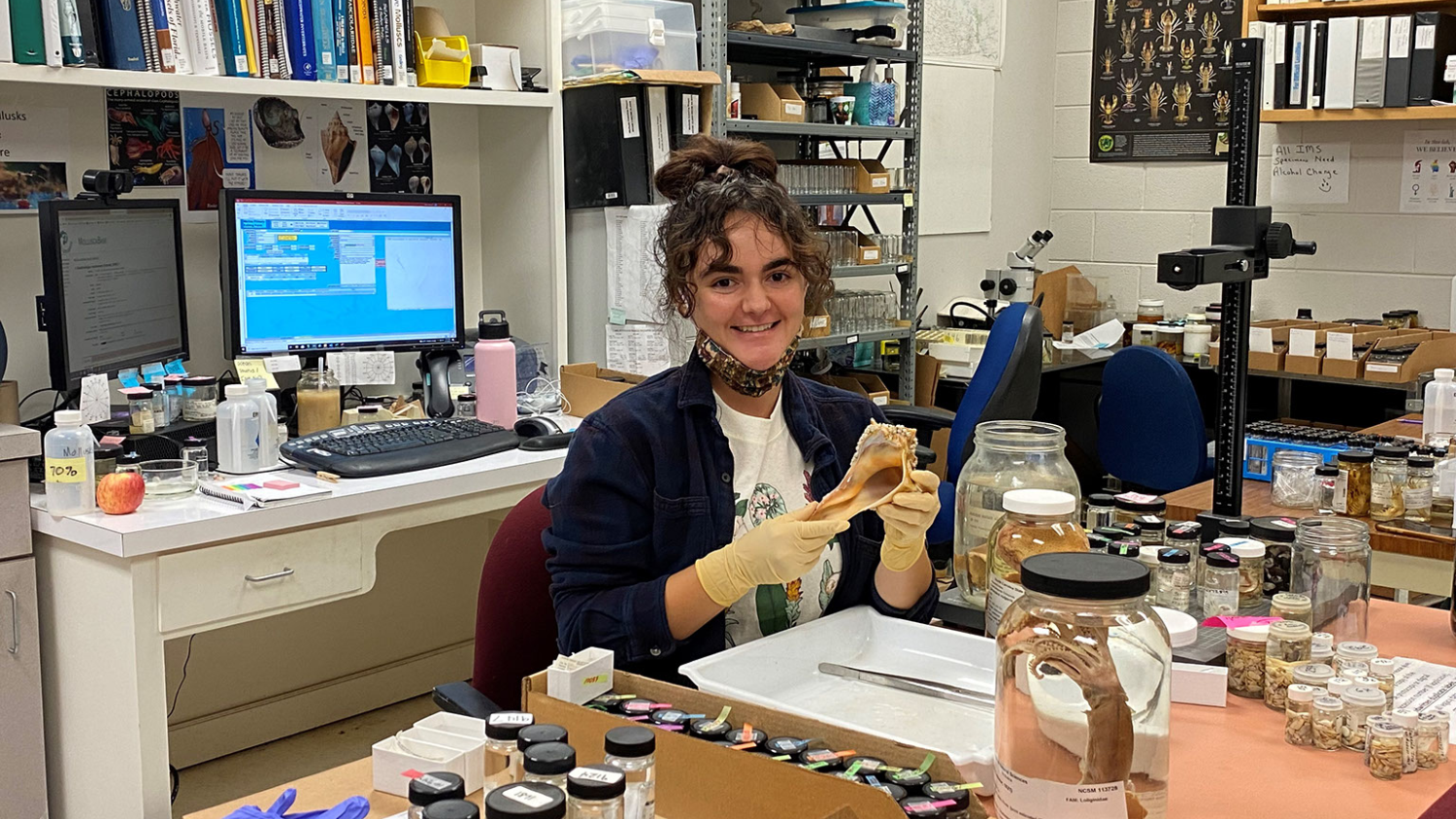Audrey Keen graduated from the NC State College of Natural Resources in spring 2021 with a bachelor’s degree in fisheries, wildlife and conservation biology. During her time at NC State, Keen worked as a summer camp support counselor for the Piedmont Wildlife Center and as an intern at the Greenville Zoo in South Carolina.
Keen now works as a technician in the mollusks collection lab at the North Carolina Museum of Natural Sciences. We recently spoke with Keen to learn more about her passion for wildlife conservation and her time as a student at NC State.
What is a typical day at your job like?
During my day, there are a few tasks I rotate between. Usually, I start with databasing specimens, which includes updating taxonomy, entering in the specimen’s locality, entering the donor and determiner, and comparing card catalog data to specimen labels. Next, I print labels to put into specimen jars (or skeleton boxes, if dry) so I can later put them up in the range. I also rehouse specimens, putting them in the proper vials, jars and refreshing their alcohol.
Recently, I have worked on our social media exposure through Instagram and TikTok (@marinemollusks_ncsm) which is a part of our grant “Mobilizing Millions of Marine Mollusks on the Eastern Seaboard.” This keeps me reading up about the specimens; I see what their unique niches are, their ecosystems, diets and other characteristics.
What inspired you to study fisheries, wildlife and conservation biology?
I grew up being outside a lot; fishing, hunting down rolly pollies, planting gardens, playing with our array of pets and making mud pies with my sister (because we thought we were earthy chefs…?). This all played into my love of the outdoors, animals and wanting to learn more about wildlife as I got older. I didn’t always know I wanted to study this but when I saw the program at NC State and thought about what kind of job would bring me joy, this was it!
How do you apply what you learned in the College of Natural Resources to your career?
What I learned about in the College of Natural Resources has really set me up for success so far. Learning about taxonomy and how to identify animals has helped me be able to look out for identifying characteristics, and proper scientific nomenclature. Our Geographical Information System (GIS), science communication and other conservation courses are applicable when I’m working on our social media, organizing specimens in the range and using various mapping programs while databasing.
How are you impacting the community through your work?
The animals I learn about here excite me, and I love to share what I learn with others. Whether I’m giving a tour of our lab, talking to coworkers or friends, posting on social media or even talking to a stranger, I might manage to talk about mollusks. Any awareness about these inverts is awesome. One thing I experienced while being here is that my boss, Art Bogan, identified zebra mussels on moss balls that were being sold in pet stores. The identification of species, curation of data and locality are all important for proper conservation applications and awareness of human impact — locally and globally.
What’s the best piece of advice you can give to a current College of Natural Resources student?
The best advice I’ve been given is to let life take its course. Eventually, you can look back and see how your path was created to take you where you are. With each job, class, volunteer position or whatever it may be, you learn what you do and don’t like. Any experience you gain is worthwhile. Not every step you take is picture perfect and don’t be too hard on yourself for that. Enjoy school and we’ll all get where we’re going eventually.
- Categories:



